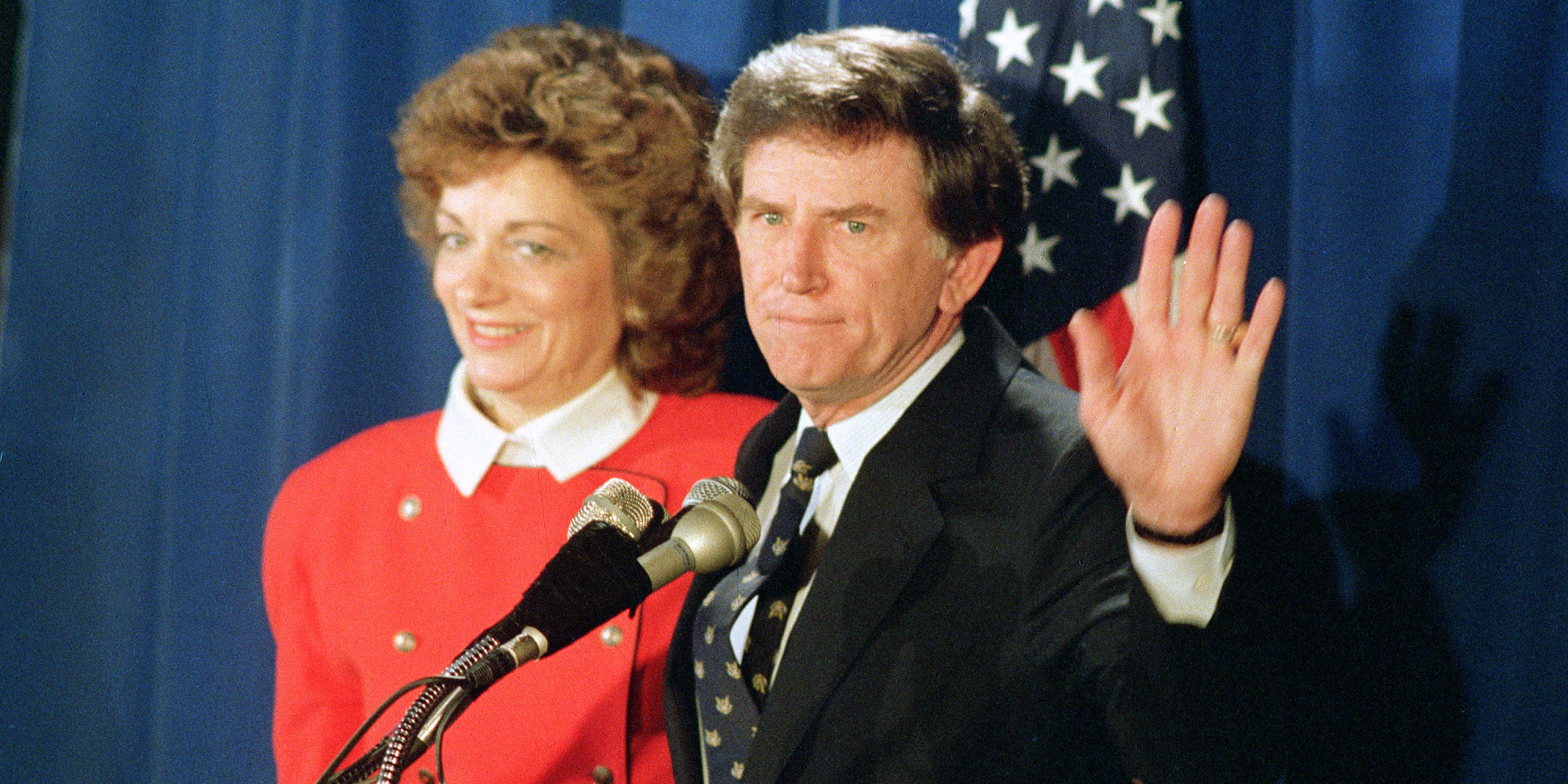There’s a fairly convincing counterfactual in which the Reagan Revolution was reversed in 1988 by President Gary Hart, a Democrat prescient about the effects technology and globalization was beginning to have on working-class America. His ascent would have prevented Middle American whites from becoming GOP stalwarts, making impossible three terms of Bushes. His monkey business with Donna Rice, it is said, dashed his dreams and ours.
But who knows?
In a smart Vanity Fair “Hive” interview conducted by Abigail Tracy, Hart bemoans that “the media has become more intrusive in people’s private lives and the loss of privacy on the part of candidates has caused an awful lot of people of quality to choose not to seek public office.” In this comment, I think Hart has had history pass him by. It was certainly true for awhile, certainly when Bill Clinton became caught in his zipper before the entire nation, but infidelities don’t seem a deal-breaker anymore, in much the same way that divorce or avoidance of military service are no longer disqualifying. It still not fair or pretty, but eyes prying into bedrooms seem beside the point.
Donald Trump (adulterer) didn’t ascend to the Republican Party nomination to oppose Hillary Clinton (married to one) because really gifted politicians were cowed by fears over past indiscretions. Fellow candidate Governor John Kasich is a gifted politician and true conservative who was rejected by GOP voters because he failed to pass a self-destructive purity test, refusing to spurn Obamacare in Ohio or engage in name-calling with the first African-American President. That’s a question of priorities, not prudishness. So is ignoring the amazing gains in household income made by non-rich citizens during the last eight years to support a party dead set on reversing policies that led to such an improvement. In our time, someone’s peccadillo may be an excuse to not vote for someone, but it’s certainly not a driving force.
One exchange from the Q&A:
Question:
How has the Democratic Party changed, in particular, since you were seeking the presidential nomination?
Gary Hart:
I was first elected to the Senate in 1974 and re-elected in 1980, and I began to realize that there were shifts, like tectonic plates under the surface, going on and it had to do with the beginning of globalization and the shift of the base of the economy from manufacturing to information. And with that shift, we began to see the Rust Belt, manufacturing states in the Midwest and the Northeast—Ohio, Pennsylvania, upstate New York, and other places—beginning to lose jobs, and communities beginning to decline. Whereas at the same time, you go to the West Coast and it was booming because of Silicon Valley.
This was all beginning in the 1970s. Foreign competition was beginning. Nations, which we had defeated in World War II, just 30 years before, were now exporting to us—cars and tech, and all kinds of consumer goods, which we had previously, in recent years, dominated world markets. So I began to talk about it and think about what the implications of this were. In 1984, I placed a great deal of emphasis on the long-term impacts of these shifts.
My principal competition in the Democratic primary, Vice President [Walter] Mondale, and I ended up dividing the country. I won 25 states and he won 25 states. No journalist to my knowledge ever tried to figure out if there was a pattern there, but there definitely was. I carried almost every state that was benefitting from world trade—the West Coast and other parts of the country—and he got the support of those areas in decline. So it was kind of an earthquake inside the Democratic Party as to who was winning and who was losing.•
Tags: Abigail Tracy, Gary Hart

